Preventive health requires fresh perspectives, collaboration across disciplines, and the courage to shape the future differently. At the Institute 4 Preventive Health (i4PH), a newly formed team of dedicated researchers is working towards exactly that: a healthier Netherlands for everyone, from the earliest months of life through to old age.
When i4PH was established five years ago, an initial outline of research themes was created. Today, the research team is testing and refining these themes through exploratory studies. This allows them to identify which specialist topics truly require attention and where i4PH can make the most meaningful impact. The team is exploring themes such as giving children a healthy start, preserving health through a sustainable living environment, healthy and independent living at home, and preventing cancer at a young age. Importantly, they do not work from an ivory tower: people with lived experience are actively involved. The team also investigates how the Netherlands can transition towards a stronger preventive health system.
Meet the researchers:
Claudia Egher
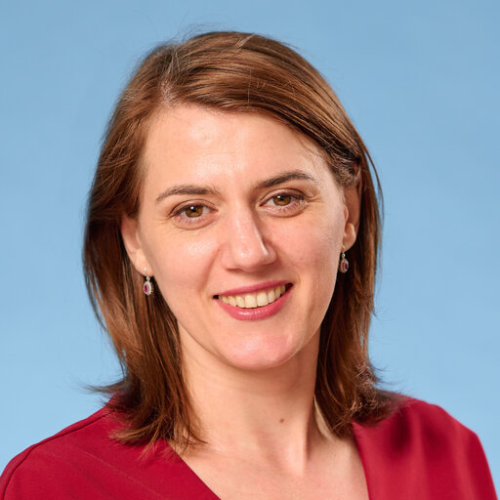
Overarching Research on Transition Pathways
How do we organise preventive health in the Netherlands – and, crucially, how could we do it better?
These are the central questions guiding Claudia Egher’s work. Using methods from Transition Studies, she is conducting exploratory qualitative research into preventive health transitions. She examines both how preventive health is currently put into practice, and what is needed to strengthen and improve it.
“Preventive health is not only about reducing disease, but about redefining how we can live well together in ways that support both human and planetary health.”
Claudia Egher
“Preventive health is not only about reducing disease, but about redefining how we can live well together in ways that support both human and planetary health,” she explains. Claudia focuses on the underlying causes of poor health – social inequality, climate change, unsustainable systems – whilst also exploring new approaches to governance, care, and how we live together. She is currently validating her findings through workshops and stakeholder meetings, including at the Preventive Health Conference 2025 and the EWUU Alliance Community Day.
You can read more about Claudia’s work in this article.
Daphne van der Bend
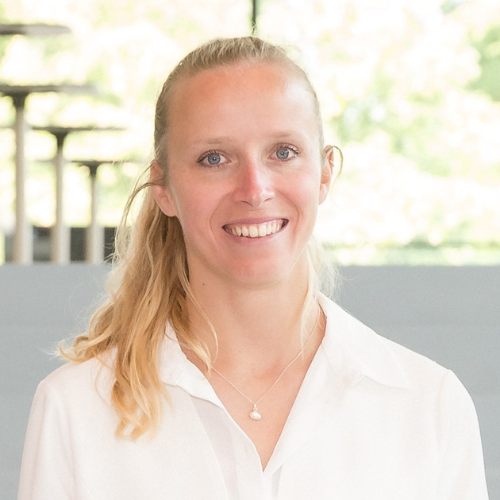
Healthy Start
As a postdoctoral researcher at UMC Utrecht, Daphne van der Bend is shaping the Healthy Start research line within i4PH.
Her work focuses on strengthening resilience and adaptability in children and young people who face physical, mental, or social challenges.
“Young people are our future, and they’re under increasing pressure.”
Daphne van der Bend
“Young people are our future, and they’re under increasing pressure,” Daphne says. “It’s essential that we understand what young people need to navigate challenges successfully, and how we can collectively support their wellbeing and development through science, policy and practice.”
In the first phase, Daphne is developing the core focus of Healthy Start together with the Dynamics of Youth community Thriving & Healthy Youth at Utrecht University. This close collaboration lays the foundation for the research themes. In the next phase, researchers from the other EWUU institutes will actively contribute as well. During a joint meeting in December, they will collectively refine the central theme and work towards shared future scenarios and goals for Healthy Start.
Joyce Zwartkruis
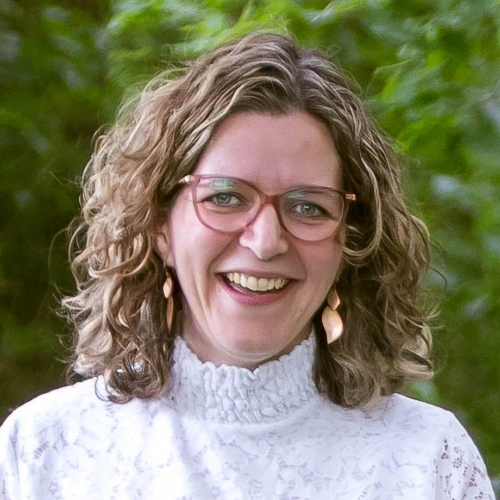
Preserving Health
The places where we live, work and spend our leisure time all influence our health – but how, exactly?
The places where we live, work and spend our leisure time all influence our health – but how, exactly? Joyce Zwartkruis explores how the design of our living environment can contribute to preventive health. Her work focuses particularly on nature-based solutions: approaches that use nature as the foundation.
“The way we shape our living environment can potentially play a major role in supporting health, but the pressure on space is enormous.”
Joyce Zwartkruis
“The way we shape our living environment can potentially play a major role in supporting health, but the pressure on space is enormous,” Joyce explains. “We therefore need to look closely at the win–wins, whilst also considering possible risks from the outset.”
Joyce is currently working with colleagues to identify relevant health considerations within NL2120 – a future vision for the Netherlands in which nature forms the basis of spatial planning. This involves studying the positive and negative health effects of different nature-based solutions, particularly in urban areas.
Anneke Spitters
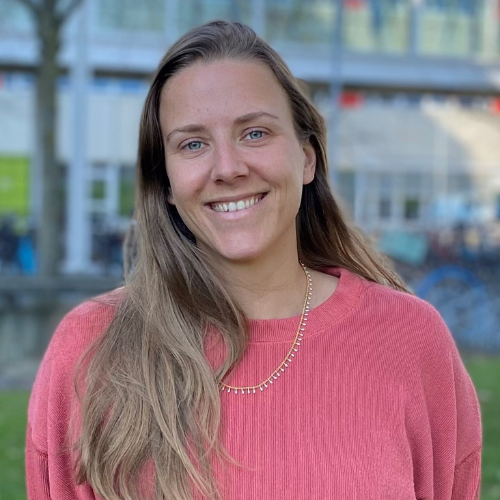
Health at Home
How can older adults continue to live safely and healthily at home for as long as possible?
This question sits at the heart of Anneke Spitters’ research. Her Health@Home research line explores how smart technology can support vulnerable older people so they can, for instance, continue living independently for longer.
It’s a highly topical issue, given the current pressures in both healthcare and the housing market.”
Anneke Spitters
“It’s a highly topical issue, given the current pressures in both healthcare and the housing market, and the expected rise in the number of older adults in the coming years,” Anneke notes. “Many older people also experience loneliness. We need innovative solutions that address all of these challenges simultaneously.”
Anneke is currently mapping the state of Health@Home through a review of existing literature. She will then interview a wide range of experts to explore how they envision Health@Home in 2040, what the ideal scenario looks like, and what shared goals should guide this vision.
Auke Verkaar
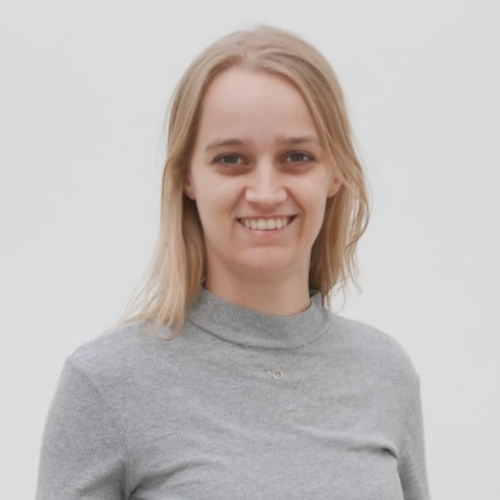
Living with Disease (Cancer)
Cancer at a young age is becoming more common and has profound impact
Within this research line, Auke Verkaar focuses on cancer prevention, with particular attention to childhood cancer, cancer in young adults, and early-onset cancer. This includes both prevention of these cancers and the wellbeing and quality of life of young cancer patients.
“For some cancer types that used to occur mainly later in life, we are now seeing cases develop earlier.”
Auke Verkaar
“For some cancer types that used to occur mainly later in life, we are now seeing cases develop earlier,” Auke explains. “I hope we can uncover new insights into why this is happening and how preventive measures might reduce the risk.”
Auke is currently in the start-up phase of the research: reading widely and speaking to experts to sharpen the focus of the research line.
Marget Franssen
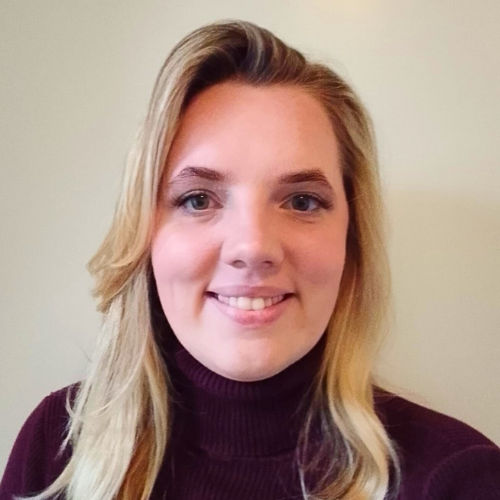
Citizens Panels
Research on health often concerns people in vulnerable circumstances – yet too often takes place without their involvement.
Research on health often concerns people in vulnerable circumstances – yet too often takes place without their involvement. Margret Franssen and colleagues Carlijn Kamphuis, Jantien van Berkel, Hilje van der Horst and Harm Veling are working to fundamentally shift this approach. Through so-called citizens panels, they bring together people facing challenges such as poverty, housing insecurity or chronic illness with researchers from i4PH.
The panel meets to advise researchers and also participates in other moments – such as dinners or conferences – where members engage in conversation with researchers and others in the field. This ensures that research is better aligned with people’s lived realities.
“Much health research focuses on people in vulnerable circumstances, but still too often happens without their involvement.”
Margret Frannsen
“Much health research focuses on people in vulnerable circumstances, but still too often happens without their involvement,” Margret explains. “As a result, research doesn’t always reflect their experiences, needs or daily realities – and with the best intentions, it can inadvertently reinforce ill health and inequality. That really needs to change. With this panel, we take an important step towards developing research with people rather than about them.”
Panels are now being established in Utrecht, Wageningen and Eindhoven. Recently, several panel members contributed to the assessment of research proposals for the Lifestyle Tailored programme, where their voices were given significant weight. The panel is designed as a learning trajectory to identify approaches that lead to equitable and meaningful research.
Working Together
Together, these researchers form the intellectual backbone of i4PH: each with their own area of expertise, but united in their mission. They are building a future in which health is accessible to everyone – from the first day of life to older age, from green neighbourhoods to safe homes, from prevention to treatment. And they do so not in isolation, but together: with each other, with experts across disciplines, and with the people at the heart of these challenges.
You can meet the team at the i4PH Conference 2025.